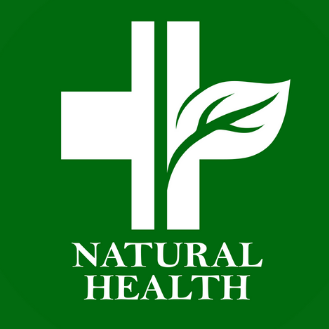How to Combat Declining Collagen Levels Naturally
By Meagan Clayton
Your skin feels less firm than it used to. Your joints ache after workouts. Your hair lacks that youthful shine. Sound familiar? These changes often point to one thing: declining collagen levels.
Collagen is your body's most abundant protein, but production slows down as early as your mid-twenties. The good news? You can take action to support your body's natural collagen production through targeted nutrition, smart supplementation, and lifestyle changes.
This guide breaks down everything you need to know about boosting collagen naturally—from understanding what collagen does in your body to discovering the foods and supplements that work best.
What Is Collagen and Why Does It Matter?
Collagen acts as the structural foundation of your body. This powerful protein provides strength, elasticity, and support to your connective tissues. Think of it as the scaffolding that keeps everything in place.
Your body contains at least 16 different types of collagen, but three types make up about 90% of your total collagen:
Type I: Found in skin, bones, tendons, and organs
Type II: Concentrated in cartilage and joint cushioning
Type III: Present in muscles, blood vessels, and organs
Collagen consists of 19 amino acids arranged in a unique triple-helix structure. This design makes it incredibly strong and flexible—perfect for supporting your body's constant movement and repair needs.
Where Collagen Lives in Your Body
Collagen concentrates in specific areas where structural support is most critical:
Skin contains about 75% collagen by dry weight. This protein gives your skin its firmness, elasticity, and smooth texture.
Bones rely on collagen for flexibility and strength. Without adequate collagen, bones become brittle and prone to fractures.
Joints depend on collagen-rich cartilage for smooth, pain-free movement. Healthy cartilage acts like a shock absorber between bones.
Gut lining uses collagen to maintain barrier function and prevent inflammatory compounds from entering your bloodstream.
Blood vessels need collagen for structural integrity and proper circulation throughout your body.
Tendons and ligaments contain dense collagen fibers that connect muscles to bones and provide joint stability.
What Affects Your Collagen Production
Several factors influence how much collagen your body produces and how quickly it breaks down existing collagen.
Age-Related Decline
Collagen production naturally decreases by about 1% per year after age 25. By age 40, you've lost significant collagen density. This explains why skin starts showing fine lines and joints feel stiffer over time.
Diet and Nutrition
Your diet directly impacts collagen synthesis. A diet high in sugar and processed foods accelerates collagen breakdown through a process called glycation. This damages existing collagen fibers and reduces new collagen formation.
Nutrient deficiencies also hinder collagen production. Your body needs specific vitamins and minerals to manufacture collagen effectively.
Lifestyle Factors
Several lifestyle choices accelerate collagen loss:
Sun exposure breaks down collagen through UV damage
Smoking reduces collagen synthesis and increases breakdown
Chronic stress elevates cortisol, which impairs collagen production
Poor sleep disrupts repair processes needed for collagen renewal
Excessive alcohol depletes nutrients required for collagen synthesis
The Benefits of Healthy Collagen Levels
Supporting your collagen levels delivers benefits throughout your body.
Skin Health and Appearance
Adequate collagen keeps skin firm, hydrated, and elastic. Research shows collagen supplementation can improve skin moisture levels by up to 28% and reduce wrinkles significantly over 8-12 weeks.
Collagen also supports wound healing and may reduce the appearance of stretch marks and cellulite by improving skin thickness and texture.
Joint Support and Mobility
Collagen provides cushioning between joints and maintains cartilage integrity. Studies demonstrate that collagen supplementation can reduce joint pain and improve mobility, especially in active individuals and those with osteoarthritis.
The amino acids in collagen—particularly glycine and proline—support cartilage repair and reduce inflammation in joint tissues.
Gut Health Benefits
Collagen strengthens your intestinal lining, supporting gut barrier function. This may help manage conditions like leaky gut syndrome and irritable bowel syndrome (IBS).
The amino acid glutamine, found in collagen, plays a crucial role in maintaining gut lining integrity and supporting digestive health.
Additional Benefits
Collagen supports several other aspects of health:
Hair and nail strength through improved keratin production
Muscle mass by providing amino acids for muscle protein synthesis
Bone density by supporting the organic matrix that gives bones flexibility
Heart health through improved blood vessel structure
Key Supplements That Support Collagen
While your body makes collagen naturally, certain supplements can enhance this process.
L-Glutamine: The Collagen Builder
L-glutamine plays a direct role in collagen synthesis. This amino acid is essential for producing collagen in fibroblasts—the cells responsible for making collagen.
Research shows glutamine can increase collagen production by up to 2.3 times at physiological concentrations. Glutamine specifically supports the biosynthetic pathways that create amino acids necessary for collagen formation.
Glutamine supplementation increases procollagen mRNA levels and collagen content by supporting the production of proline, a key amino acid in collagen structure.
Vitamin C: The Essential Cofactor
Vitamin C is absolutely critical for collagen synthesis. It acts as a cofactor for enzymes that hydroxylate proline and lysine residues in collagen molecules. This process is essential for stabilizing collagen's triple-helix structure.
Without adequate vitamin C, your body cannot produce stable, functional collagen. This is why vitamin C deficiency leads to scurvy—a condition characterized by weakened connective tissue.
Vitamin C also protects existing collagen from oxidative damage through its antioxidant properties, helping maintain collagen integrity throughout your body.
Hyaluronic Acid: The Collagen Stimulator
Hyaluronic acid doesn't just add moisture—it actually stimulates collagen production. This occurs through mechanical stretching of dermal tissue, which activates fibroblasts to produce new type I collagen.
Hyaluronic acid also interacts with collagen in the extracellular matrix, influencing tissue structure and cellular behavior that supports ongoing collagen synthesis.
Studies show hyaluronic acid can reverse changes to collagen bundles in photoaged skin and provide sustained collagen stimulation over months.
Foods That Naturally Boost Collagen
Your diet provides the building blocks your body needs for collagen production.
Collagen-Rich Animal Products
Bone broth tops the list for direct collagen content. Slow-cooking bones releases collagen into the broth, providing easily absorbed collagen peptides.
Fish with skin provides marine collagen, which may be more bioavailable than other types. Salmon, sardines, and mackerel are excellent choices.
Chicken skin and cartilage contain significant amounts of collagen. Don't skip the skin when eating poultry.
Organ meats like liver and kidney provide collagen along with nutrients needed for collagen synthesis.
Collagen-Supporting Foods
Citrus fruits provide vitamin C essential for collagen synthesis. Oranges, lemons, grapefruits, and limes are excellent sources.
Bell peppers contain more vitamin C than citrus fruits, making them powerful collagen supporters.
Leafy greens like spinach and kale provide vitamin C along with antioxidants that protect existing collagen.
Berries offer vitamin C plus anthocyanins that support collagen cross-linking and stability.
Egg whites provide proline and glycine—key amino acids in collagen structure.
Beans and legumes supply amino acids needed for collagen production, particularly glycine and proline.
Foods Rich in Collagen Cofactors
Zinc-rich foods like oysters, beef, and pumpkin seeds support collagen synthesis enzymes.
Copper sources including shellfish, nuts, and seeds are necessary for collagen cross-linking.
Sulfur-containing foods like garlic, onions, and cruciferous vegetables provide building blocks for collagen structure.
Understanding Collagen and Tryptophan
An important consideration when focusing on collagen: it's an incomplete protein. Collagen naturally lacks tryptophan, one of the nine essential amino acids your body cannot produce.
This doesn't make collagen less valuable—it simply means collagen serves specific structural purposes rather than providing complete protein nutrition. Tryptophan itself isn't involved in collagen synthesis. Instead, it serves as a precursor for serotonin, melatonin, and niacin.
For optimal nutrition, pair collagen-rich foods or supplements with complete proteins that contain tryptophan. This ensures you get both collagen's specific benefits and all essential amino acids your body needs.
Lifestyle Strategies for Collagen Support
Beyond nutrition and supplements, certain lifestyle practices support healthy collagen levels.
Protect from UV Damage
UV radiation breaks down collagen fibers and accelerates aging. Use broad-spectrum sunscreen daily, seek shade during peak hours, and wear protective clothing.
Stay Hydrated
Proper hydration supports collagen synthesis and maintains skin elasticity. Aim for adequate water intake based on your activity level and climate.
Prioritize Quality Sleep
Your body repairs and regenerates collagen during sleep. Aim for 7-9 hours of quality sleep nightly to support optimal collagen production.
Manage Stress
Chronic stress elevates cortisol, which impairs collagen synthesis. Practice stress management techniques like meditation, yoga, or regular exercise.
Limit Sugar and Processed Foods
High sugar intake promotes glycation, which damages collagen fibers. Focus on whole foods and limit processed items high in added sugars.
Building Your Collagen-Supported Wellness Journey
Collagen represents more than just another supplement—it's a foundational element supporting your body's structural integrity and long-term health. By understanding the science behind collagen synthesis and implementing evidence-based strategies, you can optimize this crucial protein's benefits for skin health, joint mobility, muscle recovery, and overall wellness.
Start with small, sustainable changes: add a serving of bone broth to your weekly routine, incorporate a high-quality collagen supplement into your morning routine, and prioritize the lifestyle factors that support natural collagen production. Your future self will thank you for investing in this fundamental aspect of healthy aging and optimal performance.
We are happy to provide our opinion on diet and nutrition, supplements and lifestyle choices. This information is for educational purposes only. It is not meant to replace the advice of your physician and is not to be considered medical advice, diagnosis or treatment. Should you have any concerns please contact your physician directly.



